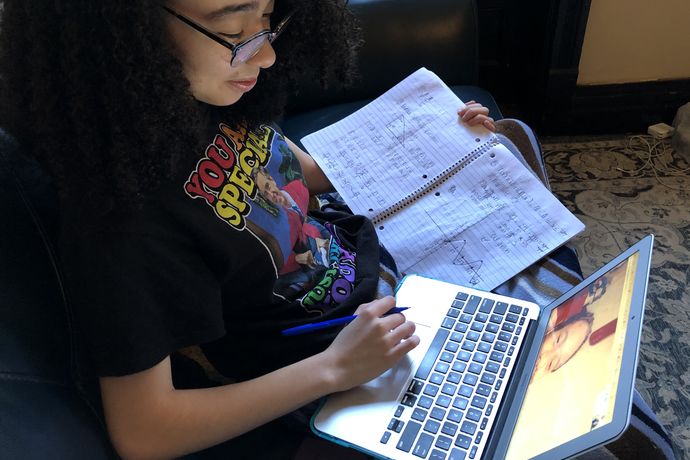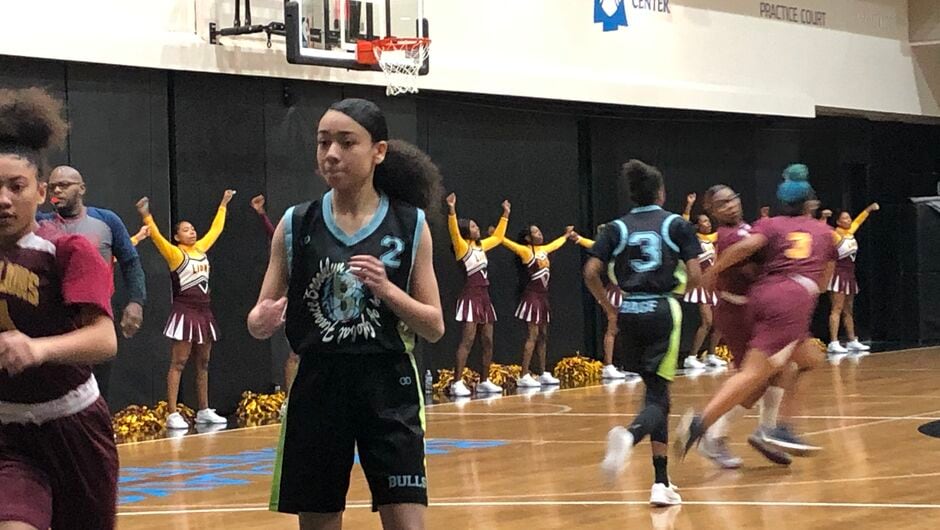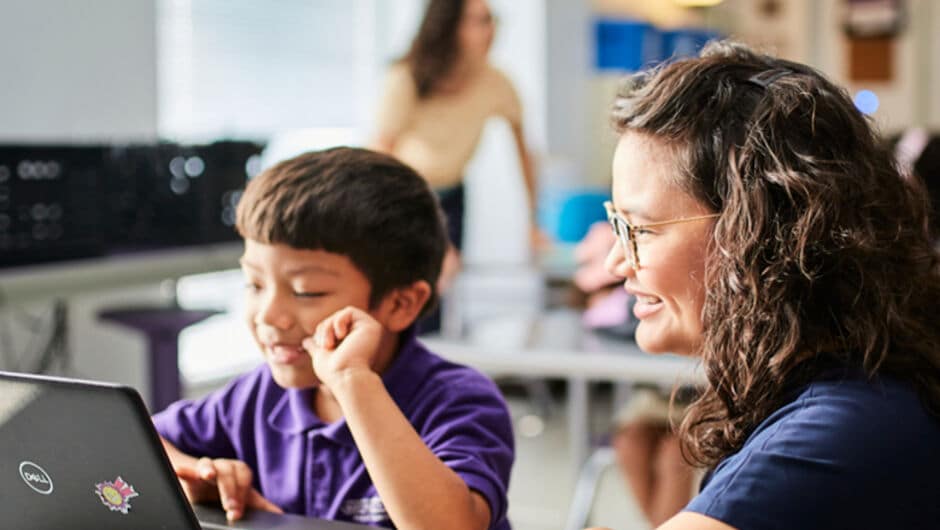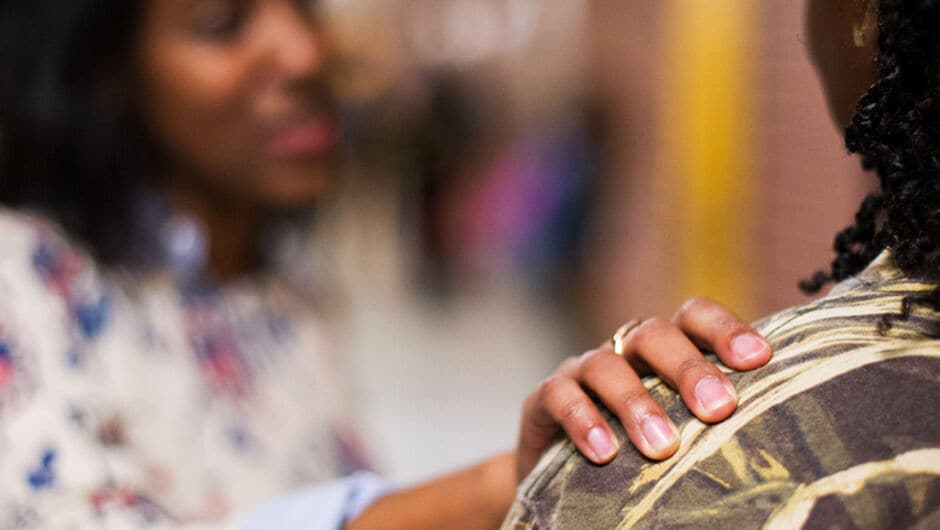
Online School, Long Naps, and Lots of Homework
A New York City teenager tells us about keeping up with schoolwork, planning for her future, and how she stays sane while social distancing.
Rosalie Bobbett is a junior at Brooklyn Emerging Leaders Academy (BELA) in the Bedford-Stuyvesant section of Brooklyn, where the 17-year-old is a member of the school's IB Honors Cohort and serves as student body president.
Rosalie lives with her parents, brother and sister, grandmother, and uncle. Both her parents have continued working in essential jobs outside the home throughout the pandemic, her mother as a school safety agent and her father as a New York City police detective.
In part because of her parents' jobs, Rosalie says she is very aware of the toll COVID-19 has taken on her community, and she is mostly staying indoors these days, out of concern for protecting her grandmother. But Rosalie, who loves documentaries and basketball, has nevertheless remained busy while school is closed, between schoolwork, thinking about colleges, keeping up with friends, and finding some time to relax.
In the latest installment of “COVID-19: Community Voices,” Rosalie tells us how she’s been spending her time while school is closed, and what’s working—and not working—with distance learning.
‘Honestly, I don't Like This Virtual Learning’
How have you been doing?
I feel my school prepared me a lot. Our school is lucky enough to give every student at BELA a laptop, and so we're very techie, I guess you can say that. When the pandemic happened, when [other] New York City kids had a week off, we were doing our studies, we didn't have a week off. Once that Monday hit [when New York City schools began widespread remote learning], we were right into school and virtual learning.
I'm a junior, so I think this has given me time to pick my colleges and pick what my future [will look like]. It's given me downtime to think what I want my future to be and thinking on my personal essay and stuff like that, and working on me.
Another thing is, when you're on the screen 24/7, you have this headache and it makes it hard for you to do work and concentrate. A lot of my peers or my friends are complaining about getting headaches. All we do is we're talking to a screen and then we're always on our phones. We're on YouTube, we're on Facebook, we're on Snapchat, and so I'm constantly having headaches, and Advil has been coming in handy.
How are classes going?
Honestly, I don't like this virtual learning. I feel like it's weird. I feel I hesitate to ask questions and to ask for help because I feel like I'm invading my teacher's time and they're going through something, too, so I have to be respectful of what they're going through.
Time is more precious now that I'm on a virtual screen because I'm making sure that I'm not wasting anyone's time. The questions I do ask, I make sure it's for everyone and not for my own personal use because I feel I don't want to waste the teacher's time.
Do you get one-on-one time with your teachers at all?
We have office hours, and if I say I need help, they assign a Google Hangout and we go to the Google Hangout and they do help us.
Has that been helpful?
I've been using it for math and chemistry. It is helpful. The teachers find new ways to connect with us, and so if I don't understand something, they try a new way to do it.
Do you think this will give a new perspective on going to school when you are able to go back?
I'm 17, then next year I'm going to be 18, and I'm going to go to college. When I go into senior year, when, hopefully this pandemic stops, I'll appreciate that time I have with my friends, and the time I have with my teachers.

A Nap Before a Long Night of Homework
How long is your school day now?
My school day used to be from 8:30 to 5 p.m. We did that virtual learning, and then my teachers realized that was too long on the computer screen. Now each class is 55 minutes, and it used to be 80 minutes. So now our school day is from nine to 1:25.
How long do you spend on homework?
I make sure I take a nap before [starting homework]. 1:25 to 5:00 p.m. is my nap time. Then from 5 p.m. to maybe 1 a.m., possibly 3 a.m. [is homework time]. Right now, I have a lot of essays. I have to write a film essay. I have to write for my ToK class—Theory of Knowledge. Then, I have to write an essay for my Latin. I have three essays to write, and they're back to back, so I'm staying up just writing the essays. Then on top of that, I have homework for history, lit, and lang.
Are there things you wish the school would do differently during this period?
To get this on record, my principal is an amazing principal, but I feel we didn't have a conversation on how this is affecting us or how this is affecting others or how this is affecting the world. Now we have many students in my community, their parents are being affected or they have people dying. I feel they're not being sensitive or they build times in our schedules to talk about it. Knowing the students, we're not going to go into those times and talk about it. I feel they have to build it in our schedule a lot. I don't know how to explain it, but I know a lot of my peers are feeling the same way I feel.
I feel the teachers, my teachers, are amazing and they're doing the best that they can. But is the best you can the best for your students? That's the question that a lot of teachers need to answer in the United States.
‘Appreciating the Little Stuff That I Do’
What do you like doing when you’re not doing schoolwork?
I like watching documentaries. My brain is completely different from a 17-year-old who likes watching hip-hop, listening to music, going on YouTube, and stuff like that. I like watching documentaries, and educating myself on topics that interest me.
Before the pandemic, what did you like to do?
I miss my basketball. From when I got off to school, I went straight to the gym, and really everyday I used to practice.
I'm on the team. We used to practice every day. We used to practice till 7 p.m. On Fridays, I get off early at 2:30, so I'll go from 2:30 to 7:00 just playing basketball.
Are you able to get out at all now?
My school builds time for that, but I usually don't go outside. I have a 70-year-old grandma, so afraid I'm going to attract something in and something's going to happen. I don't want to go outside for that reason.
How are you keeping from going crazy during this time?
Appreciating the little stuff that I do. On Saturdays, from 12 to 1 a.m., me and my dad have this time where we listen to old music, so staying on top of that, appreciating that time we have together. That's one thing that will keep me sane. FaceTiming my friends and stuff like that. We can't physically see each other but, we can see each other, in a sense.
Another thing is, on Sunday, the [Michael] Jordan series has been keeping me sane. I think TV, in general, has been keeping me there and connected and finding happiness.

‘I Don't Want to Complain’
Aside from school, how are you feeling about everything going on?
I think what stresses me out the most is, during this time, I feel like people are caring about one another, but I feel like it's impacting people of color the most. It's impacting the way we perceive races, ethnicities, nationalities, and the way people look more. Because there's this stigma that anyone that looks of Asian descent may carry COVID-19, so now there's that stigma on them.
My mother is a school safety agent. And my dad is a detective. So they're constantly in and out of the house and [they are] first responders, so my mom is making it very known that we have to clean. I feel this pandemic made me less lazy in a sense of it made me aware of personal hygiene and made me aware of just making sure stuff is clean because we don't know what's on the doorknobs.
I feel I've always been aware of what my parents have done and I appreciate what my parents have done to make my life better. I feel it made me aware. I think it made me appreciate first responders more because I've been very reluctant and it's weird because my father's a cop, but I feel I've been really reluctant on that end and I feel it made me appreciate what they're doing for us and why they're doing it for us.
One of my friends, their father was a cop and their father just died. That could be my father or that could be my mother or that could be my aunt. I think it made me self aware of the situation in general.
What are your main hopes for the next few months?
I hope the death tolls are down. I hope first responders and [others] like that are being safe. I hope everyone finds kindness in the situation and everyone is kind to one another. I think that's the main thing that I hope for.
Is there anything else you’d like to add?
I don't want to complain because there's someone out there [who has it] worse than what [I] have in my situation. I have a bed to go to, I have water, I have all this stuff and there's someone, a child out there, that may not have that. Or may not have the access to a computer.
I don't want to seem like a spoiled brat because I'm complaining about the amount of homework someone's giving me. If there's someone out there or a child out there the same age as me, that can't take a shower, don't have somewhere to lay their head, and they have a pandemic on top of that, that's what I'm afraid of.
This interview has been edited and condensed.
More Community Voices
“COVID-19: Community Voices” offers a glimpse of life and learning during the coronavirus school closures, in the words of students and parents in the communities we serve.
If you'd like to tell your story or would like to suggest a story for us to cover, please email us. And find resources for educators supporting students through the coronavirus outbreak at Teach For America's educator resource hub.
Sign up to receive articles like this in your inbox!
Thanks for signing up!
Content is loading...






